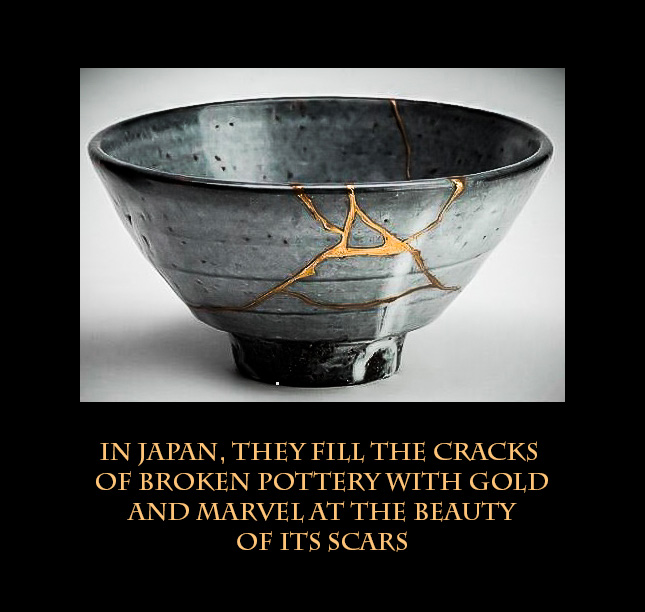Twenty years ago, I was paralyzed with depression and its sidekick: fear. A bad marriage and a worse divorce had reduced me to almost nothing. After years of having been told that I was not an artist, I had quit painting, and I had been silenced from the years of having been shamed about my writing: “Why would you want to write personal things for ANYone to read?}
Afraid of more criticism, I simply quit creating. Apparently, my silence wasn’t good enough either, and I ultimately found myself silent and alone and even more paralyzed. Believe me. I DO understand the power of depression. I’ve been there. Fortunately, I discovered an excellent psychiatrist-therapist. Initially, I visited her to see if she could heal my marriage. After a few minutes, she said the following: “Forget your marriage. It’s no good. Let’s just focus on getting YOU back.” I saw that psychiatrist for years, but along that journey, I met a new friend, and after she identified my struggle, she gave me a copy of Julia Cameron’s The Artist’s Way. Like drops of water in the desert, that book revived me–one word at a time. Julia Cameron ministers to wounded creatives.

Listening to the siren song of more, we are deaf to the still small voice waiting in our soul to whisper, ‘You’re enough.’
― Julia Cameron
The Artist’s Way: A Spiritual Path to Higher Creativity“Creativity – like human life itself – begins in darkness”
― Julia Cameron
The Artist’s Way: A Spiritual Path to Higher Creativity“Progress, not perfection, is what we should be asking of ourselves.”
― Julia Cameron
The Artist’s Way: A Spiritual Path to Higher Creativity
It is not surprising that wounded creatives soon become perfectionists, and the only way to get over perfectionism is to wade through it.
“Boredom is just “What’s the use?” in disguise. And “What’s the use?” is fear, and fear means you are secretly in despair. So put your fears on the page. Put anything on the page. Put three pages of it on the page.”
― Julia Cameron
The Artist’s Way: A Spiritual Path to Higher Creativity
Perfectionism Is Rooted in Fear
I have written several posts about the fear that prevents artists and writers from moving forward and getting their work done–from just doing it. That fear is the ugly stepchild of Perfectionism, which I believe is the scourge of life. Anne Lamott sums up the problems of perfectionism beautifully.

“Perfectionism is the voice of the oppressor, the enemy of the people. It will keep you cramped and insane your whole life…. I think perfectionism is based on the obsessive belief that if you run carefully enough, hitting each stepping-stone just right, you won’t have to die. The truth is that you will die anyway and that a lot of people who aren’t even looking at their feet are going to do a whole lot better than you, and have a lot more fun while they’re doing it.”
― Anne Lamott, Bird by Bird: Some Instructions on Writing and Life
In the above quote, Lamott is talking about how perfectionism ties the writer in knots, fills him with fear, and prevents him from writing. Michael Law would agree:
“At its root, perfectionism isn’t really about a deep love of being meticulous. It’s about fear. Fear of making a mistake. Fear of disappointing others. Fear of failure. Fear of success.” ― Michael Law
I believe that perfectionism raises its ugly head in everything that we do, and it encourages us to toss things and people away who do not measure up to some ethereal ideal of perfectionism.

In her book The Gifts of Imperfection, Brené Brown offers us some golden nougats about perfectionism. The title of the book echoes the Asian philosophy that brokenness and its scars do not have to be ugly.

Perfectionists Are Control Freaks
The first challenge in monitoring perfectionism is letting go of the need to control. Things in life do crack or they get scratched or the dog gets old and wets on them. It is absolutely impossible to control everything all of the time. We need to learn to at least accept the fact that things will get cracked. We cannot prevent that from happening. We are merely left with the challenge of how we will perceive the cracked thing and what we will do with it after it cracks.
Perfectionism Is Driven by Shame
I know people who are driven by the need to be perfect. In fact, for a long time, I was also plagued with that disease. In my own experience, the need for perfection is also driven by shame.
“Perfectionism is a self destructive and addictive belief system that fuels this primary thought: If I look perfect, and do everything perfectly, I can avoid or minimize the painful feelings of shame, judgment, and blame.”
― Brené Brown, The Gifts of Imperfection: Let Go of Who You Think You’re Supposed to Be and Embrace Who You Are
Because the Perfectionist works so darned hard to fool everyone around himself or herself that he or she truly is perfect, he or she often seems to be perfect. He or she will do everything within his or her power to look good. He or she will often be successful in his or her work. He or she will seem to have it all. But because no one can ever have it all–at least not all the time–the perfectionist’s cup is never filled. He or she will always want more, but the race to be perfect is run on a slippery slope. For starters, no one knows exactly what perfection is. Ellen Hopkins shines a beacon on that problem below:

PERFECT
by Ellen HopkinsWHY
push to attain an ideal state of being that no two random people will agree is
WHERE
you want to be? Faultless. Finished. Incomparable. People can never be these, and anyway,
WHEN
did creating a flawless facade become a more vital goal than learning to love the person
WHO
lives inside your skin? The outside belongs to others. Only you should decide for you –
WHAT
is perfect.”
Wanting to succeed is not a bad thing, but too much of anything becomes toxic.

“Understanding the difference between healthy striving and perfectionism is critical to laying down the shield and picking up your life. Research shows that perfectionism hampers success. In fact, it’s often the path to depression, anxiety, addiction, and life paralysis.”
― Brené Brown, The Gifts of Imperfection: Let Go of Who You Think You’re Supposed to Be and Embrace Who You Are
Perfectionists Are in Denial
After years of wearing masks and striving to become someone that they are not, perfectionists often forget who they actually are. The perfectionist’s denial often begins because he WANTS to forget who he is and ultimately, Voila! He isn’t who he is. He becomes something that is totally manufactured or plastic or fake. The real problem with this situation is that because the perfectionist is a shell who modeled himself after another shell, he or she isn’t who he ISN’T either.
Perfectionists Tend to Become Narcissists.
Perfectionists Cannot Tolerate Process–
They Demand a Finished and Perfect Product & That Allows No Room for Creativity–Which Is Always in Process.
“Perfectionism doesn’t believe in practice shots. It doesn’t believe in improvement. Perfectionism has never heard that anything worth doing is worth doing badly–and that if we allow ourselves to do something badly we might in time become quite good at it. Perfectionism measures our beginner’s work against the finished work of masters. Perfectionism thrives on comparison and competition. It doesn’t know how to say, “Good try,” or “Job well done.” The critic does not believe in creative glee–or any glee at all, for that matter. No, perfectionism is a serious matter.”
― Julia Cameron, Finding Water: The Art of Perseverance

Let’s return to the cracked piece of pottery. A perfectionist would throw the cracked piece of pottery away, but in Japan, they fill the cracks with gold and marvel at the beauty of its scars.
Let’s Allow Ourselves to Be Imperfect. Let’s Give Ourselves a Chance,
And as we continue to create, in spite of our imperfections, we will learn to see the magic that often only occurs when we are free from our own perfectionism. And as that occurs, we learn to love our beautifully imperfect selves.
Read more great words from Julia Cameron’s The Artist’s Way:
Discover more from Jacki Kellum
Subscribe to get the latest posts sent to your email.